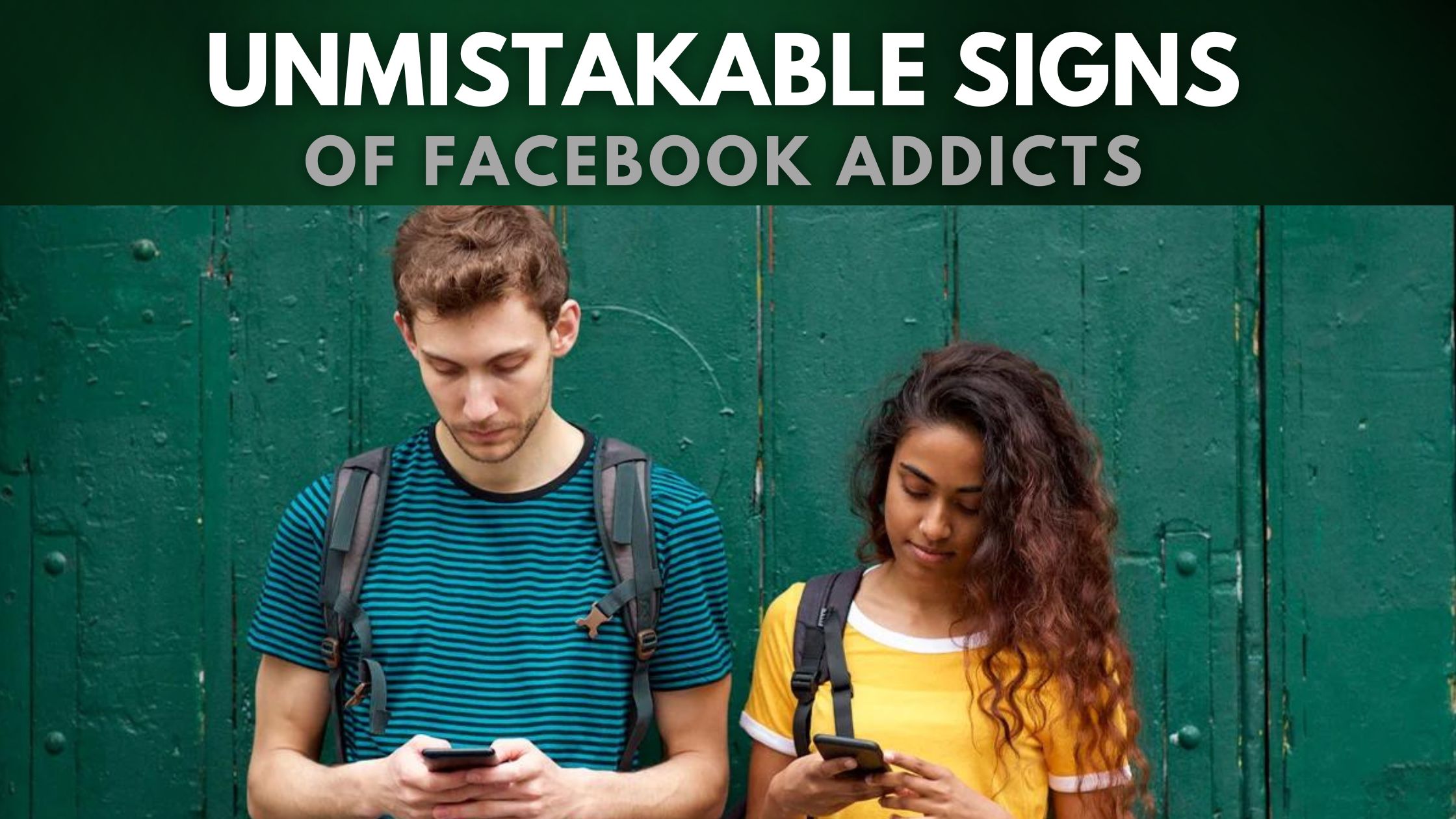Top Lists
Top 10 Unmistakable Signs of Facebook Addicts
Identifying signs of Facebook addiction allows individuals to take control, establish balance, and prioritize real-life connections.

Are you curious about the signs of Facebook addiction? Identifying whether you or someone you know is a Facebook addict can be crucial in promoting a healthier relationship with social media. In this article, we will explore the top 10 unmistakable signs of Facebook addiction.
By recognizing these signs, individuals can take steps towards regaining control over their social media use and fostering a more balanced lifestyle. Let’s dive into the key indicators of Facebook addiction and ways to overcome it.
Top 10 Unmistakable Signs of Facebook Addicts
1. Spending More Time Than Intended
One of the key signs of Facebook addiction is spending more time on the platform than originally planned. It means getting caught up in Facebook for longer periods, often losing track of time.
2. Constantly Checking for Updates
Facebook addicts have a habit of constantly checking for updates. They feel the need to be up-to-date on every post, comment, or like, frequently refreshing the page throughout the day.
3. Neglecting Real-Life Interactions
When Facebook becomes a priority over real-life interactions, it’s a sign of addiction. Addicts may spend less time with friends and family or neglect to engage in other activities they used to enjoy.
4. Obsessive Photo Sharing
Facebook addicts have an overwhelming urge to share every moment of their lives through photos. They upload pictures excessively, seeking validation and attention from their friends.
5. Excessive Engagement in Online Arguments
Addiction to Facebook can lead to a compulsion to engage in online arguments and debates. Addicts may spend excessive hours arguing with strangers or friends, often becoming emotionally invested.
6. Using Facebook as a Distraction
Facebook addicts use the platform as a constant distraction from daily tasks and responsibilities. They may procrastinate important work, or household chores, or neglect self-care activities.
7. Feeling Anxiety or Restlessness Without Facebook
When Facebook addicts are away from the platform, they experience anxiety and restlessness. They may constantly think about what they might be missing out on or feel the urge to check Facebook to ease their discomfort.
8. Difficulty Disconnecting from Social Media
Addicts find it challenging to disconnect from Facebook, even when they know they should. They struggle to resist the temptation and continue scrolling through their news feed or engaging with the platform despite wanting to take a break.
9. Neglecting Privacy and Oversharing
Facebook addicts often overshare personal information without considering the potential consequences. They may expose too much about their lives, compromising their privacy and online security.
10. Feeling a Decrease in Mood or Self-Esteem
Excessive use of Facebook can negatively impact mood and self-esteem. Addicts may compare their lives to others’ highlight reels, leading to feelings of inadequacy and low self-worth.
Impact on Mental Health and Well-being:
Facebook addiction can have a significant impact on mental health and overall well-being. It can lead to increased feelings of loneliness, depression, anxiety, and a decreased sense of self-worth. Excessive use of Facebook may also contribute to poor sleep patterns, reduced physical activity, and strained relationships.
How to Overcome Facebook Addiction
Firstly, setting specific time limits for Facebook usage can help establish healthier boundaries and reduce excessive engagement.
Additionally, logging out after each session and uninstalling the app from mobile devices create a physical barrier that discourages impulsive behavior.
Cultivating in-person relationships and engaging in self-care activities provide fulfilling alternatives to excessive virtual connections.
Seeking support from friends, family, or professionals can also be instrumental in overcoming Facebook addiction. By implementing these strategies, individuals can break free from the grip of social media and achieve a more balanced and fulfilling lifestyle.
Conclusion
Recognizing the signs of Facebook addiction is the first step toward addressing the issue. If you or someone you know exhibits these signs, it’s important to seek support and take steps toward finding a healthier balance in using social media.
Limiting screen time, engaging in real-life interactions, and practicing self-care activities can help reduce dependency on Facebook and promote overall well-being. Remember, moderation and mindfulness are key when it comes to using social media platforms like Facebook.
More Articles on RNN:
Top 10 Most Amazing Opera Houses In The World
